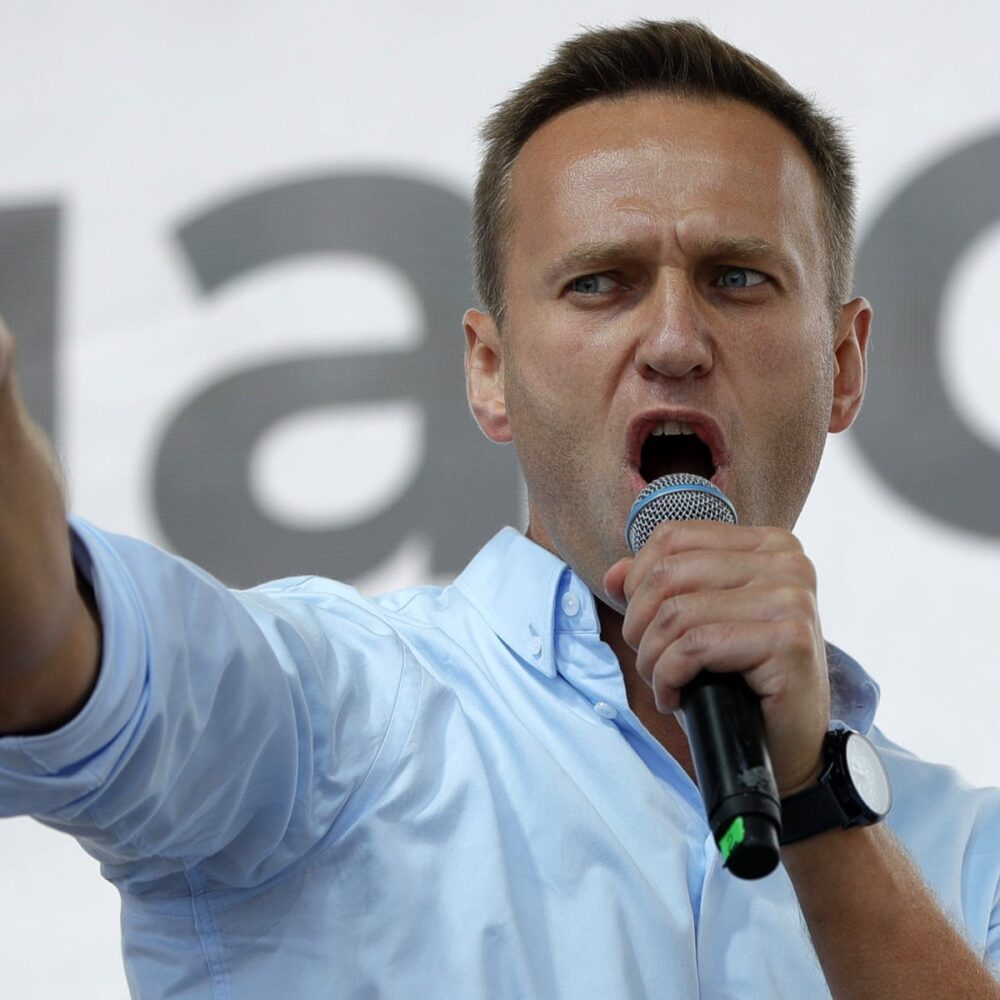
Relations between Russia and the West are expected to go from bad to worse. As soon as Russian opposition politician and the Kremlin critic Alexei Navalny was sentenced by a Moscow court to almost threes in a penal colony for breaking probation rules while in Germany, Western leaders called for his immediate release. At the same time Western media started referring to the Russian government as a “regime”.
By Nikola Mikovic
In 2014, Navalny was convicted for fraud and embezzlement but his sentence was suspended and replaced with six years of probation. He was obliged to report to the police twice a month. He was arrested in Moscow on January 17 upon his return from Germany where he had received treatment after an alleged poisoning by Russian agents.
“Somebody wanted me arrested, the moment I crossed the border. The explanation is one man’s hatred and fear — one man hiding in a bunker. I mortally offended him by surviving” said Navalny during a hearing on February 2.
Vladimir Putin
The anti-corruption activist already accused Russian President Vladimir Putin of trying to kill him. The Kremlin leader denied his involvement and accused the opposition figure of “working for the CIA”. However, Russian courts never even tried to prove that Navalny is a foreign agent.
On the other hand, there was a significant symbolism during the process. For instance, during the first hearing in the police station on January 18, a portrait of Genrikh Yagoda, the head of NKVD secret service in 1934-1936, was hanging on the wall.
It was a clear sign that the Kremlin intended to get rid of the opposition activist by sentencing him and sending him to spend years in prison far from Moscow. Also, Navalny was sentenced on February 2, which is a very important date in Russian history.
On February 2 1943, the Battle of Stalingrad (now Volgograd) – probably the bloodiest battle in history – ended in a decisive victory for Soviet Russia over Nazi Germany. There is also a certain doze of symbolism in the fact that Navalny came back to Russia from Germany.
Some authors even compare Navalny’s trip home to Vladimir Lenin’s famous return to Russia in 1917 from his exile in Switzerland. At this point, however, Navalny – unlike Lenin who overthrew the Provisional Government – hardly poses a serious threat to Putin, although his arrest will be used in the West as an additional instrument against Moscow.
President of European Commission
“I call on Russia to comply with its international commitments and release him immediately and unconditionally,” Ursula von der Leyen, the president of the European Commission, said on Twitter.
The very term “international commitments” has been reserved mostly for inferior countries that are heavily dependent on the Western powers. If Russian authorities, under pressure from the West, eventually release Navalny, it will be seen as a clear demonstration of Russian weakness.
It is worth noting that some Western media, such as Euronews and Foreign Policy already started referring to the Russian government as a “regime”. Russian officials, on the other hand, primarily Putin and his Foreign Minister Sergey Lavrov, still talk about the Western leaders as their “dear Western partners”. Such a rhetoric could be interpreted as another sign of weakness and inferiority.
Still, it is not very probable that the Kremlin will succumb to Western pressure and release the opposition figure. However, Navalny’s relatively small term could eventually be cut to one or 1.5 years due to his “good behavior”, but even such a decision will likely be part of a wider deal between “Russian regime” and its “dear Western partners”.
One thing is evident: relations between Russia and the West will remain tense, and could become even more complicated especially if frozen conflicts in the Donbass and Transnistria escalate. Indeed, this year will bring numerous challenges to Russian leadership, while Navalny will remain one of the most famous political prisoners.
Nikola Mikovic is a Serbian journalist and a senior Geopolitical Analyst he publishes often for The Levant News.





